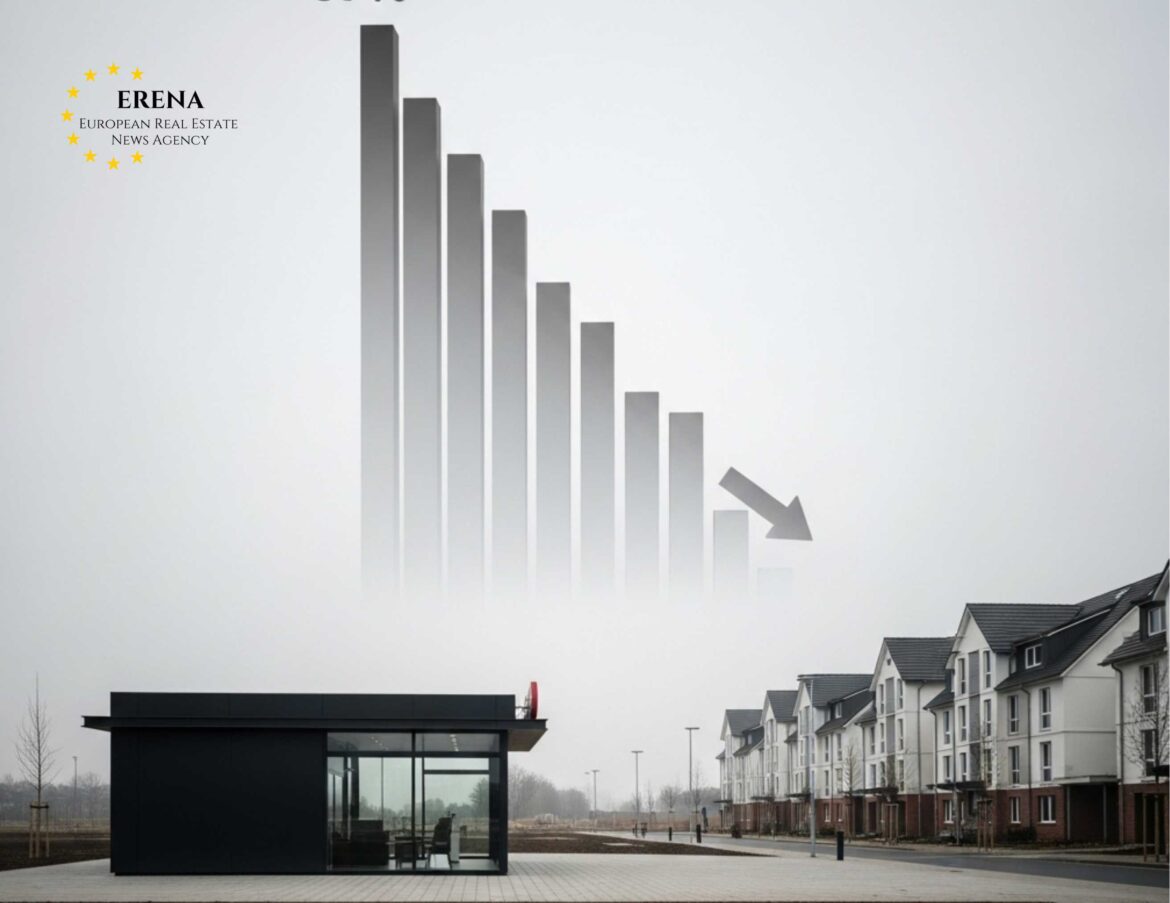Country Garden, once hailed as China’s largest private real estate developer, reported a 37% drop in sales for 2024, despite having launched a broad debt restructuring strategy aimed at stabilizing its financial position. The sharp decline underscores the continuing turmoil in China’s real estate sector, which has been under severe stress since 2020.
Steep Decline in Sales
According to the company’s latest financial report, sales revenue fell to 253 billion yuan (approximately €35 billion) in 2024, a significant decline from the previous year. This represents the most severe annual downturn in the firm’s history, and comes amid tightening regulations, liquidity shortages, and declining consumer confidence.
Key reasons behind the drop in sales include:
- Plummeting buyer confidence: With growing fears of unfinished projects and delivery delays, many Chinese homebuyers are avoiding pre-sale properties altogether.
- Regulatory pressure: Government restrictions, particularly the “three red lines” policy, have limited developers’ ability to borrow, squeezing liquidity.
- Construction delays: Many of Country Garden’s developments have stalled or slowed, further eroding market confidence and discouraging new purchases.
Debt Restructuring Measures
To address its mounting financial woes, Country Garden initiated an ambitious debt restructuring plan. Key elements include:
- A proposed 70% reduction in offshore debt, equivalent to around $11.6 billion;
- Extensions on bond maturities and options to convert some debt into new financial instruments;
- Ongoing negotiations with offshore creditors, including bondholders and trust managers.
Although some agreements have been reached, analysts caution that restructuring alone will not revive the company unless core sales recover.
Financial Performance
Despite the grim outlook, there were signs of improvement compared to the previous year’s crisis:
- The company reported a net loss of 32.8 billion yuan (approx. €4.5 billion) in 2024;
- This represents a considerable improvement over the record 178.4 billion yuan loss in 2023;
- Some regional operations showed signs of modest recovery, but overall performance remained weak.
Investor and Market Reaction
Investor response to the results has been cautiously pessimistic. Country Garden’s shares remain near historic lows, and the firm continues to hold a junk credit rating from major agencies.
Concerns persist over its ability to deliver housing units and meet creditor obligations without significant external support.
Broader Real Estate Crisis in China
The case of Country Garden reflects the wider distress in China’s private real estate sector. Notable sector-wide trends include:
- A decline in off-plan sales across most major cities;
- A shift in consumer behavior toward completed, ready-to-move-in properties;
- Preferential policy support going to state-owned developers, leaving private firms at a disadvantage;
- Rising construction costs and inflation further squeezing profit margins.
While the central government has announced stabilization measures, many analysts view them as insufficient—especially for large private developers.
Future Outlook
Country Garden has stated its commitment to:
- Prioritize completion of key projects in major regions;
- Collaborate with local authorities to access housing subsidies and support;
- Maintain open lines of communication with investors and creditors.
However, with continued low demand and weak market conditions, the road to recovery is expected to be long and complex.
The company may be forced to reduce costs, divest assets, and exit less-profitable markets to survive the downturn.
Conclusion
Country Garden’s 37% decline in annual sales—even amid an active debt restructuring program—highlights the depth of the crisis gripping China’s property sector. The company’s struggles reflect the fragile state of confidence in private real estate and the challenges facing developers under Beijing’s tightened fiscal and regulatory policies.
Whether Country Garden succeeds or fails in its restructuring efforts will be seen as a litmus test for the entire private real estate model in China. The outcome will not only affect investors and creditors, but also millions of homebuyers and the broader financial stability of the nation.

